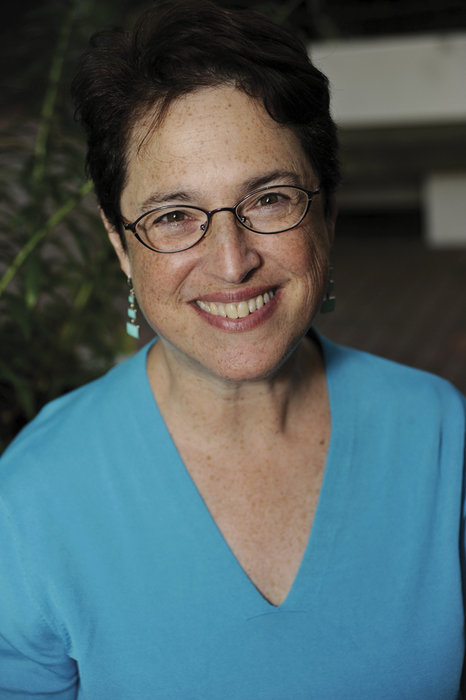Imagine walking the halls of your middle school as a 13-year-old eighth grader one day, and the next day sitting next to an 18-year-old as a college freshman in Biology 101.
For most people, college begins after four years of high school, but for an extraordinary group of young women it begins as soon as they leave middle school.
In “College at 13: Young, Gifted, and Purposeful,” local resident and co-author Dr. Razel Solow, in collaboration with Dr. Celeste Rhodes, analyzes the lives of 14 highly gifted young women who skipped all or most of high school, and how such an experience influenced their lives.
Unique program for gifted girls
The young women featured in the book were enrolled in the Program for Exceptionally Gifted (PEG) at Mary Baldwin College, in Staunton, Va. It is the first and only college that offers a full-time residential early college entrance program for gifted girls in the United States. The all female college consists of 800 students.
The book expands upon a research study that was begun by Dr. Celeste Rhodes who became assistant director of PEG in 1985 and went on to serve as the executive director from 1998 to 2001. The PEG program began in 1984.
“There are a lot of children…who have gifted potential.” – Razel Solow
____________
In addition to her involvement in nearly a decade of study and analysis of these 14 young women, Solow also furthered the work with in-depth follow up interviews of five of the women who are now in their thirties to get a closer look at their adult lives post PEG.
Challenging misperceptions of ‘giftedness’
In the book Solow dispels misperceptions of “gifted” children such as the notion that they should be superstars or that those who radically accelerate through school will become emotionally unstable or that they will be unsuccessful in their adult work and relationships.
Solow noted that while the term “gifted” may bring to mind a child that has a “global giftedness” and that while in some cases children do excel all-around, some children may be gifted in one academic area and not in another.
“Sometimes people think giftedness means very high IQ,” said Solow. “We explain that it has a lot of different definitions.”
In the case of the girls she profiles, there were some who were intellectually gifted while others were advanced artistically and yet others may have demonstrated a keen awareness of social justice at an early age.
She noted that what gifted children may share is a feeling of being different and that of having priorities unlike their peers who may be more interested in talking about boys rather than books.
“There is a big push toward popularity [in middle school],” said Solow. And while the some of the young women felt isolated based on their differing interests, Solow emphasized that “they were also regular girls.”
Most of the women featured in the book were economically in the middle class. Solow made the distinction that none of them went to private school.
“They didn’t have huge advantages financially,” said Solow. While the 14 women in the study lacked ethnic diversity, with only two African American women and one Filipino woman featured, Solow noted that work is being done to look for alternative assessments and multiple criteria to identify gifted children.
“There are a lot of children…who have gifted potential,” noted Solow.
All of the girls in PEG did had perform well academically and have good grades in order to be accepted into Mary Baldwin College. The college considered grades, essays, interviews, and standardized tests among other factors in determining acceptance.
“They didn’t ask for an IQ score,” noted Solow. “They looked for children who were passionately interested in coming.”
For parents, young girls, and women
While the girls fit into an extraordinary category given their educational advancement, Solow emphasizes that their lives were not any easier or less challenging but that they had mentors and a support system to get them through tough choices. Not all of the women had complete certainty about their future.
The types of careers the women pursued varied from biology professor to military intelligence analyst to art center director.
Solow said the stories of how these 14 young women addressed problems and remained focused on a path of purpose may inspire adult women who feel passionate about getting involved in their communities. Or that parents “whose bright children have not been labeled gifted or talented” may gain knowledge about how to encourage their child to live with purpose. Finally, for parents like her with children who were labeled “gifted,” the book may just provide deeper understanding and tools to help their children thrive.
What’s next
Solow has lived in Hoboken more than five years. She received her BA from Brandeis University, her MAT in English from Cornell University, and her Ph.D in Educational Psychology (Gifted) from the University of Virginia. She is the former director at the Center for Gifted Studies and Education at Hunter College (CUNY). She will present in November at the National Association for Gifted Children (NAGC) and at the Texas Association for the Gifted (TAGT) annual conferences.
“College at 13: Young, Gifted, and Purposeful,” is available on Amazon. For more information, visit: http://www.greatpotentialpress.com/.
Adriana Rambay Fernández may be reached at afernandez@hudsonreporter.com.
Sidebar
Excerpt from ‘College at 13’ by Razel Solow, Ph.D and Celeste Rhodes, Ph.D.
Developing deep friendships and knowing that there are others who grapple with the same kinds of problems can be hugely beneficial for gifted children who feel isolated.
